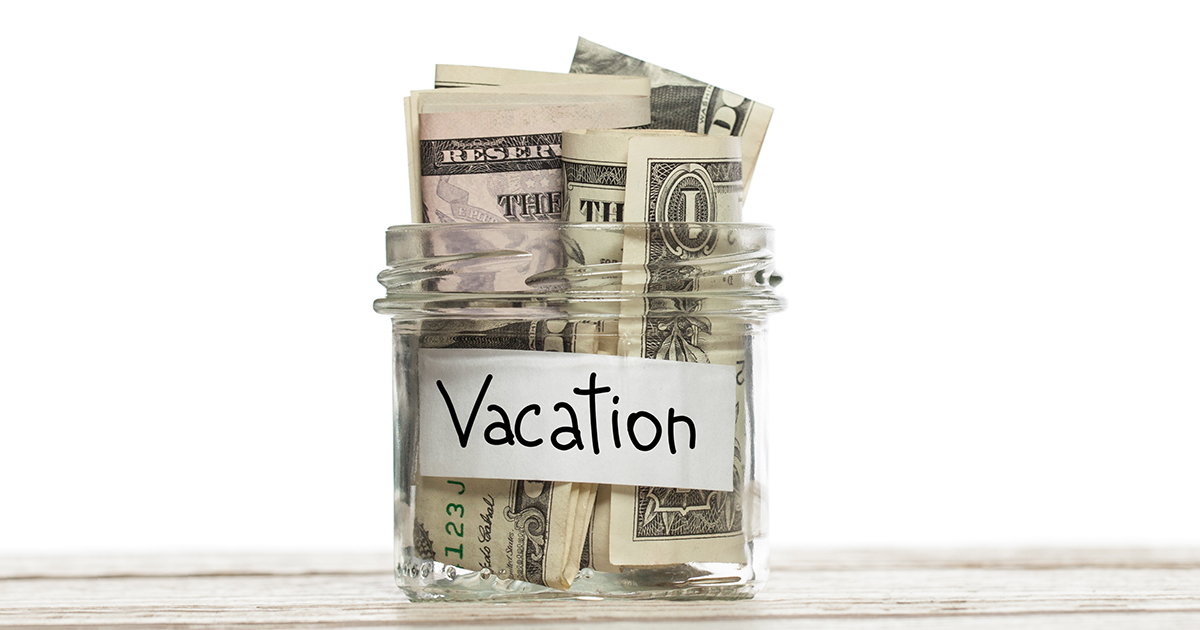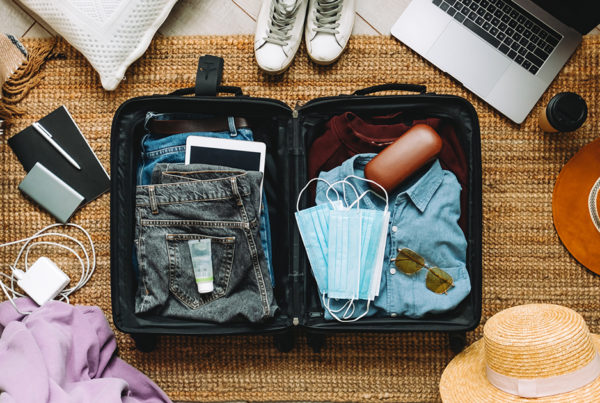COVID-19 continues to impact our everyday lives—many recently learning how much-anticipated spring breaks are being canceled or others finding themselves uncomfortable with departing for their travel destinations. Pandemic-related or last-minute changes to blame, nothing is more devastating than having to cancel a well-planned vacation. Sometimes you simply can’t avoid unforeseen situations.
The reality of vacation cancellation is not only a headache (and a disappointment), but it could be cause for panic when travelers realize they could be out of money.
While booking travel always carries some level of uncertainty, and a canceled vacation will likely come with a financial impact, here are some tips to minimize your financial losses and reduce stress when the wave of vacation disappointment rolls in.
Travel Insurance-101: When Should I Purchase Travel Insurance?
Before the unfortunate decision of canceling your vacation comes knocking at your door, consider the travel risk at hand and identify if coverage for your financial expenses is worth it. Simply speaking, travel insurance reimburses travelers when something goes wrong. While optional, these insurance policies can be a benefit in circumstances when you are or are not able to travel.
Although a generally low-cost expense among all travel costs, travel insurance may seem like an unnecessary expense but it can certainly help during times of uncertainty. (And, although we are facing continued uncertainties due to the ongoing coronavirus pandemic, it is critical to read the fine print and ask questions as many policies now have stipulations directly relating to the pandemic.) Pandemic or not, travel insurance can reduce the financial risk when booking travel.
Ask questions to get a better picture of what travel insurance is available. Do some digging to see if you already have travel insurance coverage (for instance, with a specific credit card). There are limitations and risk with certain reservations. Be mindful of how those limitations could be affected by your travel arrangements. Learn about the different types of travel insurance policies, expected pricing and coverage options. Typically, the more coverage in a policy, the higher the cost.
According to research from Business Insider, the average travel insurance policy costs $111 per vacation which takes into consideration factors such as: age of travelers, quantity of travelers on your trip and amount spent on trip.
Travel insurance policies can help cover non-refundable parts of your vacation. Policies can cover trip cancellation or interruption (hello winter snowstorms impacting travel); trip delays; medical costs while traveling; baggage damage, delays or loss; emergency transportation; or rental car damage, to name a few.
There are a few common methods for obtaining travel insurance.
- Credit card: Some credit cards offer travel insurance if the reservations are booked using the credit card.
- Travel agent: Booking directly with a travel agent can provide an easy, and sometimes less expensive, option to purchasing travel insurance as it will be combined with the overall expense of the vacation.
- Travel insurance company: Purchase travel insurance directly from travel insurance company websites for more customized offers to meet your individual needs but do your homework and compare options that will work best for your travel circumstances.
Note that with all travel insurance policies there are likely limitations and restrictions. Especially during the ongoing pandemic, travel insurance can be a beneficial safety net in the event of halted travel plans, however many things are not covered due to the significant tumultuous times of uncertainty. Your policy may not cover all expenses, so be sure to read the fine print.
Cancel travel reservations as soon as possible
As the reality of canceling a vacation sets in, don’t panic (at least try not to). Know that canceling reservations sooner than later increases your chances of receiving a refund. Note that while some companies may have strict cancellation policies (including deadlines) in place, there may still be opportunities to reap a refund.
Understand the rules for reimbursement with your deposits. Create a list of all of the reservations and deposits that have already been made. Begin with the big-ticket expenses such as hotel and flight reservations.
Pick up the phone and talk directly to another human
Grab your mobile device and make a good old-fashioned phone call. And as previously mentioned, do so as soon as possible for the optimal chances at a refund.
It is necessary to speak to the RIGHT person. Don’t be afraid to ask for someone in management as it may increase your chances for a full or partial refund. And don’t forget, while your emotions may be high, approach the situation calmly and respectfully.
In the travel industry, speaking to representatives and explaining your situation can at times work in your favor. Even further, in some industries, if your reservation can be filled by another customer, the company may reconsider prior cancellation policies. Speaking directly with another human can significantly increase your chance at guaranteeing some return.
Consider seeking alternative options (vouchers, anyone?)
While the disappointment for canceling a vacation is real, it is important to seek out any opportunities for refunds. In the event that a money refund is not an option due to previously stated policies, don’t be afraid to ask for other alternatives. You may find that some companies will provide vouchers for use toward a future service or reservation.
If this is an option, be sure to receive the offer in writing (mail or email) as proof for future use. Having easy access to this documentation helps in the event that you need to confirm promises in the future and also eases the process for rebooking when the time is right. Remember to document the names of people you speak to and confirmation numbers that are provided.
Lastly, if you do receive a voucher, keep it in a safe space. Don’t lose it. Consider setting a reminder so you don’t forget to make use of it as there could be an expiration on the date of use.
While any vacation cancellation can feel like someone stuck a pin in your anticipation- and fun-filled balloon of vacation dreaming, know that there are options available to recoup certain financial expenses. Contact your travel vendors as soon as possible to confirm cancellations and identify what options are available. It never hurts to ask.
If you are successful in getting monetary refunds, be sure to confirm deposits back into your accounts by checking your accounts often. Don’t hesitate to call if you need to confirm a refund.
Be knowledgeable about your travel companies’ policies and make an effort to increase your chances of a refund in the event of unlikely circumstances.
While booking travel always carries some level of uncertainty, and a canceled vacation will likely require some financial loss, use these tips to minimize your financial losses and reduce stress in these disappointing times.
If halted travel plans force a staycation in your near future, check out our staycation ideas for ways to transform your wanderlust right at home (weather-permitting of course).






 Federally Insured by NCUA |
Federally Insured by NCUA |  Equal Housing Opportunity |
Equal Housing Opportunity |